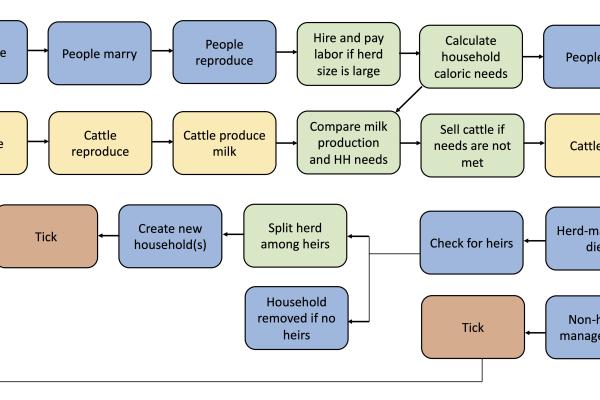New paper in Human Ecology

We just published a new paper in Human Ecology. Moritz, Mark, Chelsea E. Hunter, Daniel C. Peart, Abigail Buffington, Andrew J. Yoak, Jason R. Thomas, Rebecca Garabed, and Ian M. Hamilton. 2023. Coupled demographic dynamics of herds and households constrain livestock population growth in pastoral systems. Human Ecology: 51(4):641-653.
Here is the abstract: One of the dominant narratives about pastoral systems is that livestock populations have the potential to grow exponentially and destroy common-pool grazing resources. However, longitudinal, interdisciplinary research has shown that pastoralists are able to sustainably manage common-pool resources and that livestock populations are not growing exponentially. The common explanation for limits on livestock population growth is that reoccurring droughts, diseases, and other disasters keep populations in check. However, we hypothesize that coupled demographic processes at the level of the household also may keep livestock population growth in check. Our hypothesis is that two mechanisms at the herd-household level explain why livestock populations grow much slower in pastoral systems than predicted by conventional Malthusian models. The two mechanisms are: (1) the domestic cycle of the household, and (2) the effects of scale and stochasticity. We developed an agent-based model of a pastoral system to evaluate the hypothesis. The results from our simulations show that the couplings between herd and household do indeed constrain the growth of both human and livestock populations. In particular, the domestic cycle of the household limits herd growth and ultimately constrains the growth of livestock populations. The study shows that the misfortunes that affect individual households every day cumulatively have a major impact on the growth of human and livestock populations.
